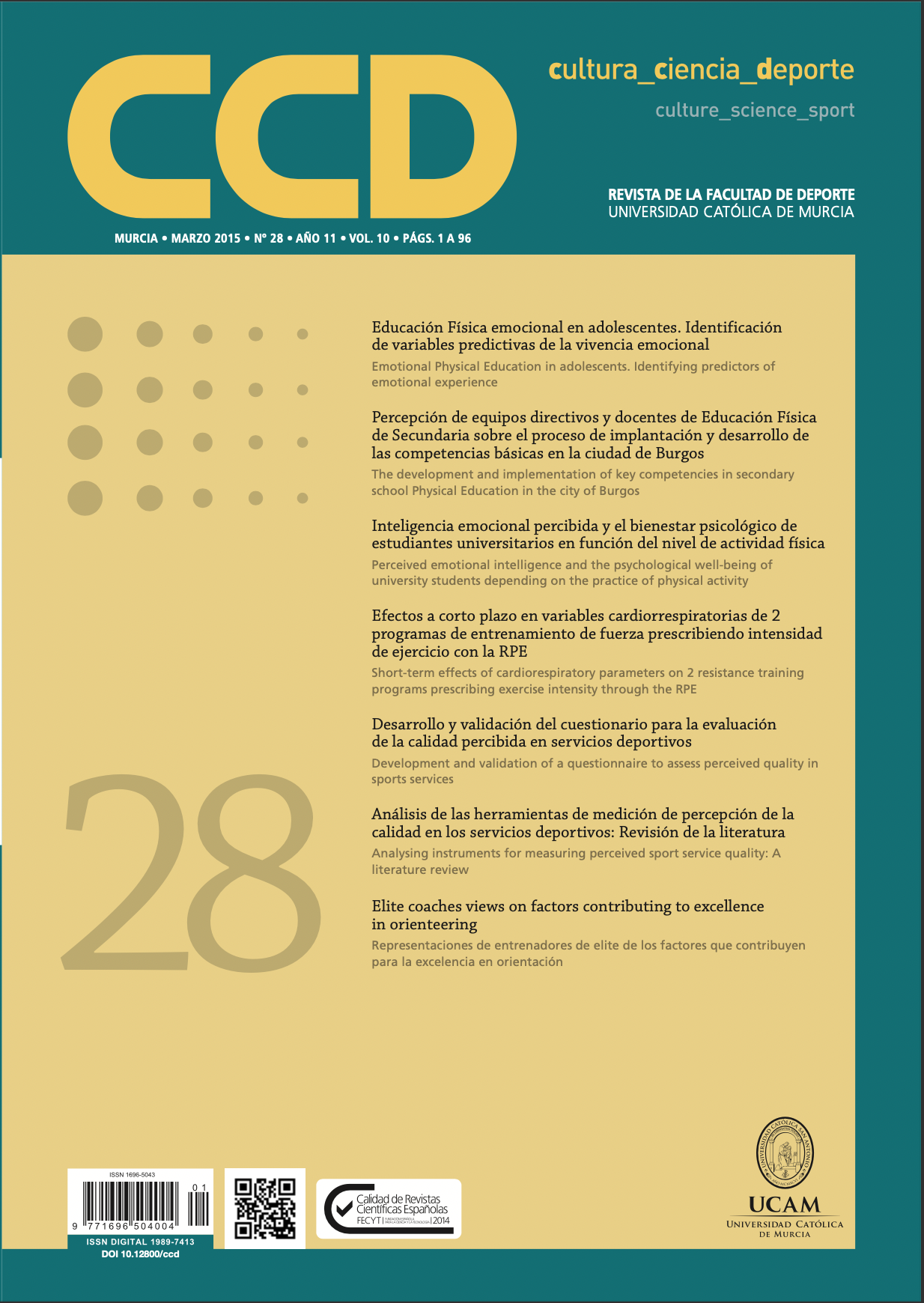Desarrollo y validación del cuestionario para la evaluación de la calidad percibida en servicios deportivos. (Development and validation of a questionnaire to assess perceived quality in sports services).
DOI:
https://doi.org/10.12800/ccd.v10i28.515Abstract
http://dx.doi.org/10.12800/ccd.v10i28.515
El objetivo del presente estudio fue examinar la estructura factorial del Cuestionario de Evaluación de la Calidad Percibida en Servicios Deportivos. Para ello se realizaron tres estudios diferentes con una muestra total de 867 usuarios (426 hombres y 431 mujeres), con edades comprendidas entre los 14 y los 81 años. Los resultados mostraron que el instrumento presenta adecuadas propiedades psicométricas. El índice de discriminación de los ítems mostró valores superiores a .40 y el nivel de consistencia interna fue adecuado en todas las subescalas (α > 0,75). El análisis de componentes principales mostró una solución estable compuesta por once factores, que explicaban más del 50% de la varianza en cada una. Los índices de bondad de ajuste para el modelo obtenido y puesto a prueba mediante análisis factorial confirmatorio fueron adecuados. Además, esta estructura dimensional se mostró invariante en función del género, mostrando equivalencia factorial y métrica. Futuros estudios deberían aplicarse a servicios de naturaleza y titularidad diferente, así como examinar la invarianza de medición en otras culturas.
Palabras clave: calidad de servicio, evaluación de la calidad, servicios deportivos, calidad percibida.
===
Abstract
The aim of this research was to examine the factorial structure of a questionnaire to assess perceived quality in sports services. For this purpose, three different studies were performed with a total sample of 867 users (426 men and 431 women), age between 14 and 81 years. The results showed that the instrument has adequate psychometric properties. The discrimination index of the items showed values above .40 and the level of internal consistency was adequate in all subscales (α > 0.75). Principal component analysis showed a stable structure composed of eleven factors, which explained more than 50% of the variance in each subscale. The confirmatory factor analysis indicated an adequate goodness-of-fit-indexes for the model obtained. Additionally, through a multi-group analysis, the findings indicate that the dimensions are not significantly different among gender, showing structural and metrical equivalence. Futures studies should apply different nature and ownership to services, as well as examine the measurement invariance in other cultures.
Key words: service quality, quality assessment, sports services, perceived quality.
Downloads
How to Cite
Issue
Section
License
The authors who publish in this journal agree with the following terms:
- The authors retain the copyright and guarantee the journal the right to be the first publication of the work as well as licensed under a Creative Commons Attribution License that allows others to share the work with recognition of the authorship of the work and the initial publication in this journal.













